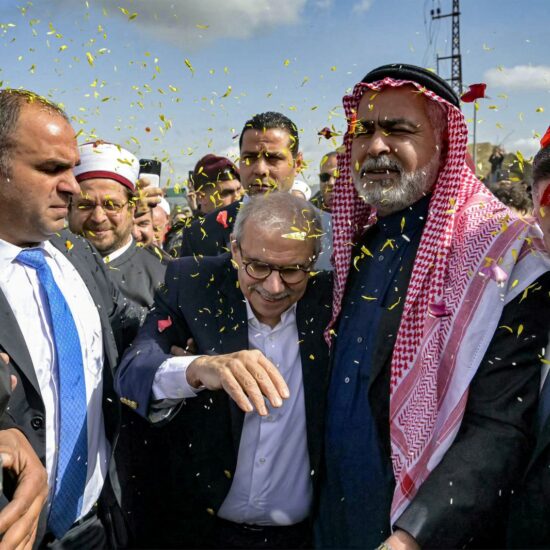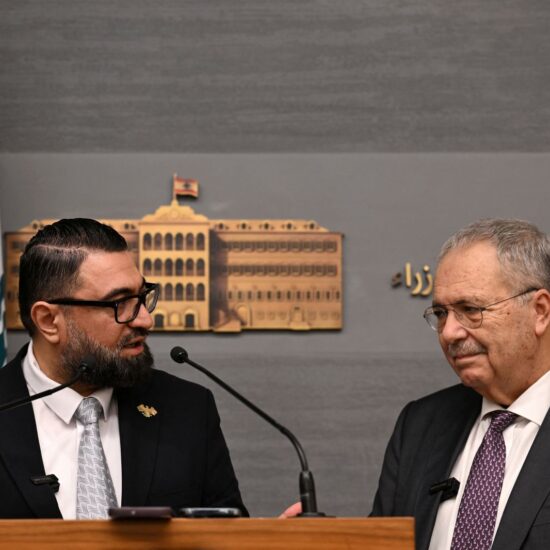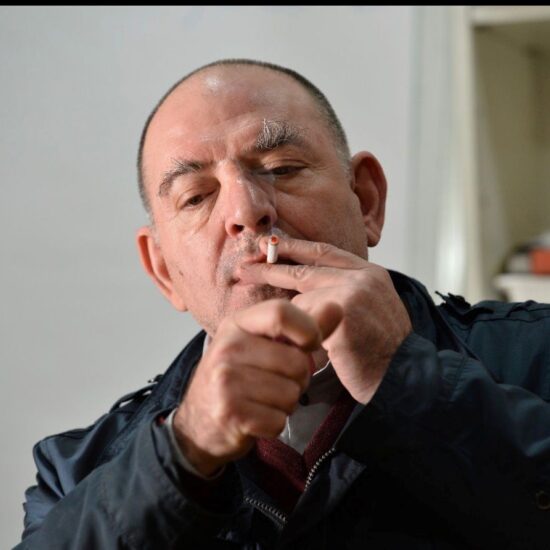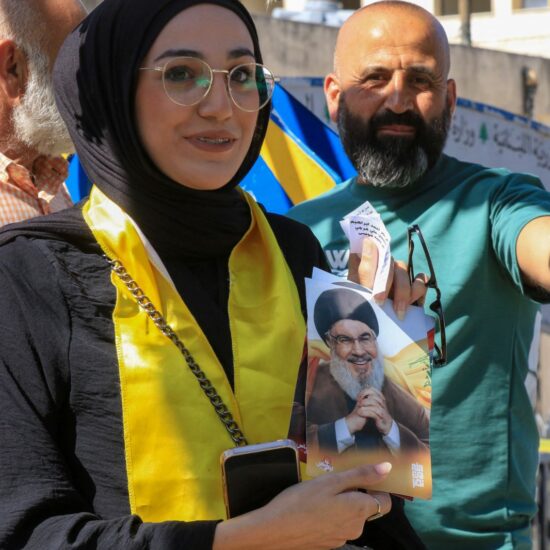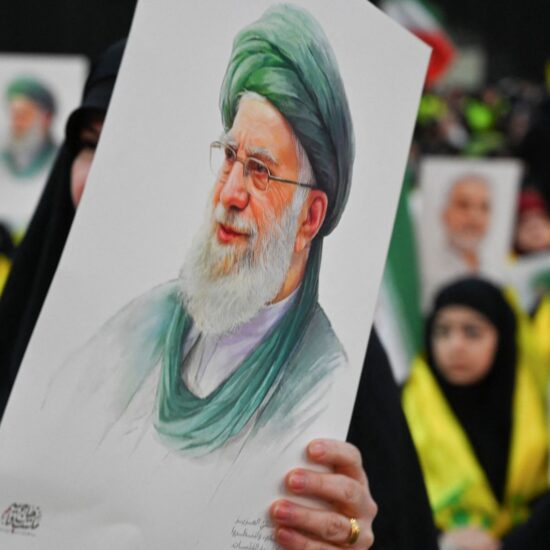
Relatives of the victims of the Beirut port explosion demonstrated on Thursday morning against MPs gathered at the UNESCO palace for a Parliament session meant to vote on a new commission that would investigate and decide whether to lift the immunity of three former ministers suspected of negligence in the explosion probe.
Families of the victims, joined by members of civil society, called for the protest at 9 am on Thursday in front of the palace where the Parliament occasionally convenes after the Beirut blast.
Only a handful of people showed up. A few relatives of the Beirut Blast victims, some lawyers, and supporters.

Several political factions announced on Wednesday that they would not participate in the session. With only Hezbollah, Amal Movement and Future Movement present, the quorum was not met, but Parliament speaker Nabih Berri insisted on holding it.
Victims’ families saw the session as an attempt by the three participating political parties to delay the Beirut blast investigation to protect their respective members, Amal’s MPs Ghazi Zaiter and Ali Hassan Khalil and Future’s MP Nohad el Machnouk, and deemed it “the session of shame”.
The night before, a larger group of victim’s families and supporters demonstrated in front of Nabih Berri’s residence in Ain Al Tineh area of Beirut, calling for scrapping the session and lifting the immunities of the three MPs. However, civilians in dark clothing snuck out from behind the security forces and attacked the small group of protestors. Participants in the protest said they believed they were supporters or bodyguards of the Parliament speaker.

According to William Noun, brother of the victim Joe Noun, 13 family members of Beirut blast victims were injured in Wednesday’s clashes. He claims that many families were intimidated by the recent attacks and clashes. They also realized that the session was not going to meet the quorum anyway.
“We know that this session is not going anywhere but Berri insisted on it just to spite us”, Noun said on Thursday morning as he was heading to the UNESCO palace to demonstrate.
But even for a handful of protestors, the Lebanese security forces deployed enough troops to keep a crowd away from the UNESCO Palace where the MPs were set to meet. The troops blocked off the road leading to the palace, so the protestors were bound to hold their sit-in on the highway. Quickly, the riot police gathered in a big group and stood in front of the demonstrators.

This triggered a wave of anger amongst the protestors, especially the youth. The families stayed in the back and few protestors marched forward to face the police directly.
Demonstrators chanted against the political parties who sent their MPs to the session of shame – Hezbollah, Amal and Future Movement.
They also chanted against the security forces who were deployed in protection of the palace.
“Your kids are going to remember your faces, you, the ones who stood in front of the families of the victims to protect thugs,” the protestors shouted at the riot police.
“Even if you’re going to starve one day, we won’t be there for you,” they also said.

Nidal Jorre, political activist and active member of the civil society, called for sympathy towards the police and described them as simply being “controlled slaves.”
“Hopefully one day we’ll have independent police but until then we need to realize that we need the support of the military and police, otherwise the politicians can unleash their militias to overlook the security of the country, and they will divide it into sectarian areas governed by their militias,” he explained.

Session adjourned
Since the Progressive Socialist Party, the Lebanese Forces, as well as The Free Patriotic Movement boycotted the session, the protesters felt they won a small victory against the establishment. But as far as the investigation into the port blast is concerned, the families’ hopes are not high.
“They want to take matters into their own hands,” Hussein Al Achi, a lawyer from Beirut, said. “But we are here to ensure that the investigation keeps going.”
He explained that the politicians are implementing many methods to bury the investigation, but the probe led by Tarek al Bitar is their best bet, at least for the moment.
“What else can we do if they bury the case? Even if we go to the world court, it might take ages, it will also be costly and it won’t be known if its decisions will be implemented,” the lawyer explained.
Rima Zahed, sister of the victim Amine Zahed also said that international investigations and then reaching international courts seems a farfetched option for the families.
“Even if we want to take the case internationally, they won’t allow us,” she said.
Al Achi said that protest and pressure from civil society were the best ways to push the government to comply with the investigation. As long as the people resisted the politicians’ decisions, this form of resistance could bring about some results.

“The Lebanese are doubtful about this investigation and if we wanted to take it abroad, people will believe conspiracies and that the case is now politicized. The people, unfortunately, don’t trust anyone,” he said.
However, he mentioned that a legal group has been working since the day of the blast to take the case towards international justice.
For the families and the protestors, it seemed like their only ways of raising awareness and putting pressure on politicians were their personal efforts, from blocking off roads to protesting in front of deputies’ houses.
“If the deputies that show up today vote against the judge’s decision, we will personally go to each of their houses and take care of this issue with our own hands,” Noun stated.
Only 39 deputies showed up, the session was adjourned and the decision on creating the parliamentary commission was postponed.
“This is a victory, we won, now let’s all head home,” Noun said.
Dana Hourany is a multimedia journalist with @NOW_leb. She is on Instagram @danahourany.



